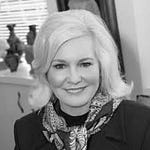This week, a podcast and a panel. The March 2021 Hale Report podcast is my interview with Karen Petrou, discussing her new book, Engine of Inequality: The Fed and the Future of Wealth in America. Just published, it is already the #1 book in its category on Amazon.
Ms Petrou is a well-known and influential commentator on monetary policy and banking regulation, and is managing partner at Federal Financial Analytics in Washington DC. We have often included links to her analysis in our newsletter, and I have had the great pleasure of meeting her both in Chicago and Washington.
That was not possible this time of course, so I interviewed Ms Petrou remotely. She made several key points: the Fed is responsible for the record rise in inequality between 2010 and 2016, and it continues to look for data in all the wrong places. Other potential countermeasures to inequality such as education simply take too long.
She strongly believes that the Fed should have a third mandate in addition to employment and price stability, economic equality. I've included excerpts from her remarks below, but hope that you will find time to listen to our half-hour podcast via the link below. I always hope our listeners will learn something they didn't know before, or hadn't thought about in that way. I think this interview accomplishes just that.
Excerpts:
I think, sadly, the data the Fed uses are often way off base, because they're averages and aggregates. And in a highly unequal country, as the United States has become, that's very misleading.
Something happened in 2010 and income and wealth inequality grew far worse, far faster than ever before. And the one thing that clearly changed, starting in 2010, after the Great Financial Crisis's worst effects were behind us, was new monetary and regulatory policy. And that's what this book is about. What happened in 2010, and how could it have made us so much less economically equal and, as you said, what can we now do to change?
Think about it though, economic inequality, what's it about? It's about income and wealth. That's the engine that makes us more or less equal. But what is its fuel? In economic inequality, the fuel is money. There is no agency in the United States with the power over money other than our central bank. That's what monetary policy is all about. Bank regulation, what is it about? It's about who has the money, who gets the money, how much does it cost to get the money.
You can follow Karen Petrou on her blog Economic Equality and on Twitter: @KarenPetrou
Seeking Alpha: China Equities - Moderated by Lyric Hughes HaleIf you are interested in Chinese equity markets, you might enjoy the panel I moderated for the CFA Society of New York last month, Seeking Alpha in Chinese Equities. Panelists include:
Winston Ma, CFA, former Managing Director, China Investment Corporation; Author, The Digital War and The Hunt for Unicorns
Kenton Kilmer, Vice President, Young America Capital
Jianan Liu, Ph. D., Head of Factor Investing Strategies, Shanghai Mingshi Investment Management; Assistant Professor, University of Hong Kong
LINKS ON ECONOMIC INEQUALITY
January 2021 / Princeton University
COVID-19 and global income inequality
Angus Deaton
There is a widespread belief that the COVID-19 pandemic has increased global income inequality, reducing per capita incomes by more in poor countries than in rich. This supposition is reasonable but false... Country by country, international income inequality decreased. When countries are weighted by population, international income inequality increased, not because the poorest countries diverged from the richest countries, but because China—no longer a poor country—had few deaths and positive economic growth, pulling it away from poor countries.
January 14, 2021/Vox
Financial globalisation and inequality: Capital flows as a two-edged sword
Barry Eichengreen, Balazs Csonto, Asmaa El-Ganainy, Zsoka Koczan
Global inequality has fallen in recent decades, but within-country inequality has risen in a significant number of national economies during the same period. This column identifies the channels through which financial globalisation accentuates inequality and suggests how these could be mitigated by accompanying policies.
January 7, 2021/ Collaborative Fund
Two Worlds, So Much Prosperity, So Much Skepticism
Morgan Housel
In economics, can two things can be true at the same time? Some US consumers have never been in a better financial position. For others, things have never been worse.
January 2020 / Economics from the Top Down
Debunking the 'Productivity-Pay Gap'
Blair Fix
In this post, I debunk the ‘productivity-pay gap’ by showing that it has nothing to do with productivity. The reason is simple. Although economists claim to measure ‘productivity’, their measure is actually income relabelled.
February 11, 2021 / Foreign Affairs
China’s Inequality Will Lead It to a Stark Choice
Branko Milanovic
Inequality has become the Chinese system’s Achilles’ heel, belying the government’s nominally socialist tenets and undermining the implicit contract between the rulers and the ruled.












